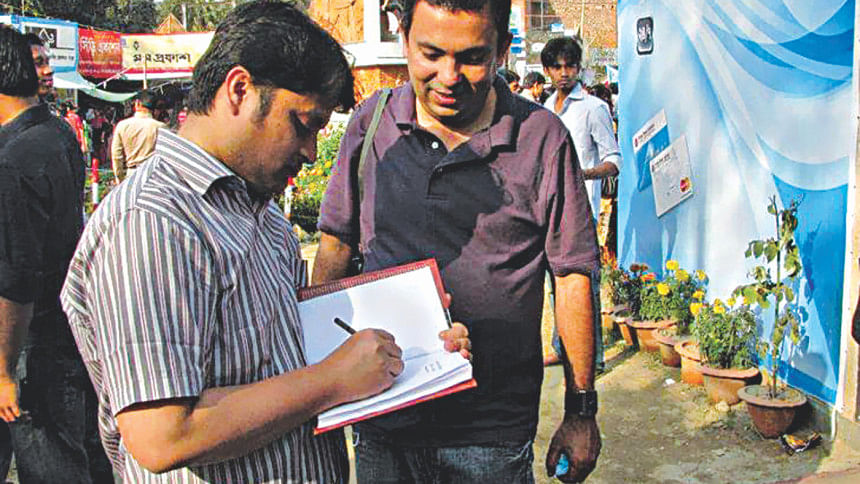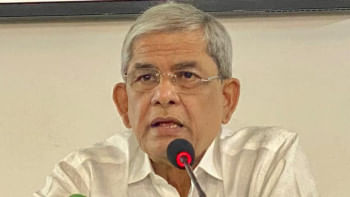Ananta isn't dead, we are

Ananta Das is dead and cold alright. Yet because man is what he stands for and believes in, something tells me it's not him that is dead. Rather, those of us who have failed to save his life are.
This latest attack on free speech comes with a disturbing record. In less than three months, he is the third Bangladeshi blogger to be murdered. And our deep slumber is pointer that the record may get only worse before we wake up one day to find ourselves in a place we don't know anymore.
Like Avijit Roy and Oyasiqur Rahman, who were hacked to death allegedly by religious fanatics in February and March, Ananta took up his pen and keyboard to denounce fundamentalism, superstition and unscientific ideas and to promote science, humanism and law of nature. He preferred logic to blind faith and believed that man must think freely, rationally and scientifically to find answers to his questions about life.
Is it possible that his writings and blog posts went against some people's take on religion, any religion, and hurt the feelings of some devout religious followers? Yes, but bullets and butchering knives can't be the answers in a debate of thoughts and ideas.
Still, that's how Ananta was answered. Four butchering knives came down hard on all over his body. At least 14 times. Somehow, he had this premonition, more so since the murder of Avijit, on whose Mukto-mona blog he used to write. And his survival instinct had prompted him to reach out to the international community. Recently, the Swedish PEN invited him to speak about the threats atheists face in Bangladesh, but the Swedish Embassy in Dhaka declined to give him a visa suspecting he might not return. Perhaps the embassy was right and we don't seek to question its decision. Only there are some ifs and buts here.
But what is the government doing to protect those facing death threats for simply having a different view on life, politics and religion? It was public knowledge that Ananta's life was in danger. In March 2013, Chittagong-based Hefajat-e Islam made a list of 84 "anti-religious" bloggers, including Ananta, and handed the list over to the home ministry for action against them. Militant outfit Ansarullah Bangla Team put all the 84 on its hit list as reported in the media. As far as we know, the government's response has been stone cold.
In the first place, on what legal grounds can a religious organisation hand over a list and demand action against someone for writing a book or making a comment on social media? Since when have we lost our constitutional right to freedom of speech? And even if someone crosses the limit of decency, what should a responsible government do when it has information that extremist elements are out to kill him? Should it play the role of a silent observer and, worse still, justify its silence?
Prime Minister Sheikh Hasina's son Sajeeb Wazed Joy would have us believe that "we are walking a fine line here." In his view he expressed in an interview with Reuters, the political situation in Bangladesh is too volatile for the PM to comment publicly on the murder of Avijit Roy because "we [the government] don't want to be seen as atheists."
For Joy, may we say there is no fine line between right and wrong, between life and death? By drawing these "fine lines," didn't he essentially portray the government as powerless before this "religion card"? We don't see our government as a weak one, nor do we want to.
And to those who believe in killing in the name of religion, we say: Man and his life is greater than dogmas. May we also remind them one of Islam's supreme teachings that to kill one innocent man is to kill the entire humanity?

 For all latest news, follow The Daily Star's Google News channel.
For all latest news, follow The Daily Star's Google News channel. 



Comments